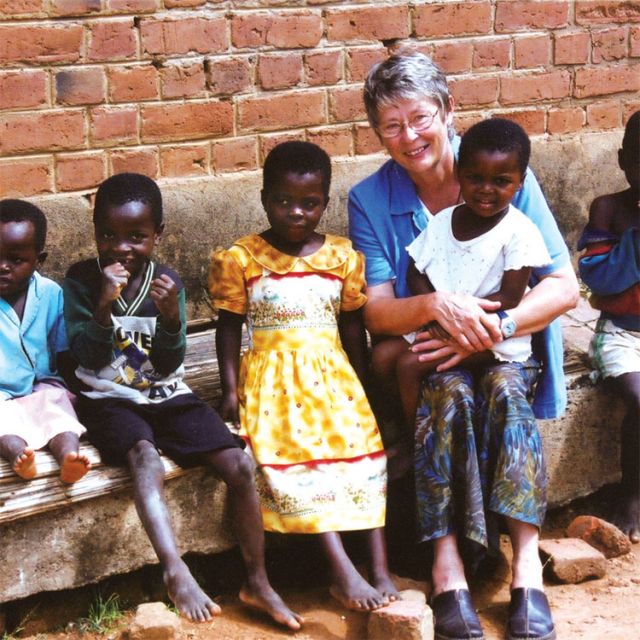The introduction of a one-year program has been discussed, said Mary Olenick, co-ordinator of the lay mission program.
“The reason for it is that young people who would phone and inquire on our program were keen until they heard it was a three-year commitment which includes four months of formation,” Olenick said. “So if we want to get young people on board we thought, okay, we can try a one-year program.”
Scarboro Missions has launched its Short-term Mission Program as a pilot project, not as a replacement for the three-year program, but as an introduction to it. The hope is it will draw new missioners to make a three-year commitment.
“One of our hopes is that people will get a taste of mission life and want to carry on for additional years,” said Carolyn Doyle, who was hired in November as the Short-term Mission co-ordinator.
In addition to a shortened time commitment the pilot project also has an age restriction of 22 to 35 and a requirement of a post-secondary degree or diploma — although Doyle hinted that exceptions may be approved in the future on a case-by-case basis.
“We felt that it was important to put 22 to 35 because we felt that young people that were interested in going overseas might be more comfortable going around with people who are more around their age range,” said Doyle. As for the post-secondary condition, “the thinking is that for young people the university or college degree at least gives them some sort of skills and knowledge going overseas. Basically it’s just to make sure that we are sending people who will be able to contribute something.”
The goal is to recruit between two and 10 new missioners to send to Guyana this year with the ideal group size being five or six. Posted primarily in Georgetown, Guyana’s capital, the group will work with long-term missioners in schools, hospitals, orphanages and possibly prisons.
While the tasks of the short-term missioners will be based on their skills, education and comforts, the one thing Kate O’Donnell said they’ll all be required to do is listen.
“A lot of the stuff we do is kind of just being a presence for the people,” said O’Donnell, who recently returned from her second three-year term as a prison missioner in Guyana. “We spend a lot of time being with the people, listening to them, walking with them. We don’t have the answer but we can listen to what they have to say and just be there for them.”
Applications to the program were to close April 26. Before being accepted the applicants are interviewed three times and are required to provide three references. Those accepted will undergo two months of formation training over July and August where they will spend four days a week learning about the local culture they’ll experience, Scripture and spirituality, and balancing personal finances. These classes will take place Monday through Thursday with Friday being a day for the rookie missioners to start doing some volunteer work.
“The idea is that it is a good opportunity for them to start doing that volunteer work and thinking about it from the perspective of a missioner,” said Doyle.
Those accepted are asked to raise $500 to help offset some of Scarboro Missions costs, which include airfare, local medical coverage and a monthly stipend between $500 and $600.
The missioners will depart for Guyana in early September where they will remain, assuming no complications arise, until late May 2014. Once back in Canada, they will then spend June at Scarboro Missions, as they did during formation, undergoing a debriefing process.
“Coming home is sometimes the biggest challenge,” said Doyle, who spent seven years in Botswana before joining Scarboro Missions. “We really want to make sure they feel supported and are able to transition back into their life.”
While Scarboro Missions go to great lengths to prepare and support the new missioners, Doyle said at the end of the day it’s really a matter of personal comfort.
“It’s a life-changing experience, it’s a wonderful opportunity but unless you are completely comfortable with going it’s better to delay a bit.”

